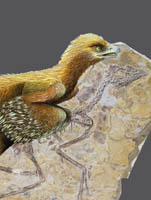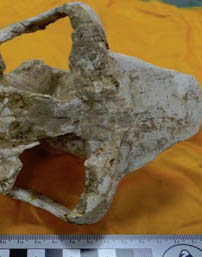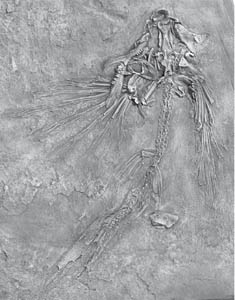|
|
|
|
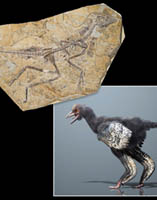 |
ScienceNow:Earliest Bird Claim Ruffles Feathers |
Early bird? Artist's reconstruction (right) of a claimed 160-million-year-old avian skeleton (left) found in China.
Credit: (fossil, left) Thierry Hubin/IRSNB; (reconstruction, right) Masato Hattori
During the Jurassic period, between about 200 million and 145 million years ago, some meat-eating dinosau... |
|
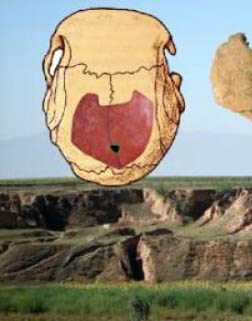 |
ScienceDaily: Skulls of Early Humans Carry Telltale Signs of Inbreeding |
| Mar. 18, 2013 — Buried for 100,000 years at Xujiayao in the Nihewan Basin of northern China, the recovered skull pieces of an early human exhibit a now-rare congenital deformation that indicates inbreeding might well have been common among our ancestors, new research from the Chinese Academy of Sciences and Washing... |
|
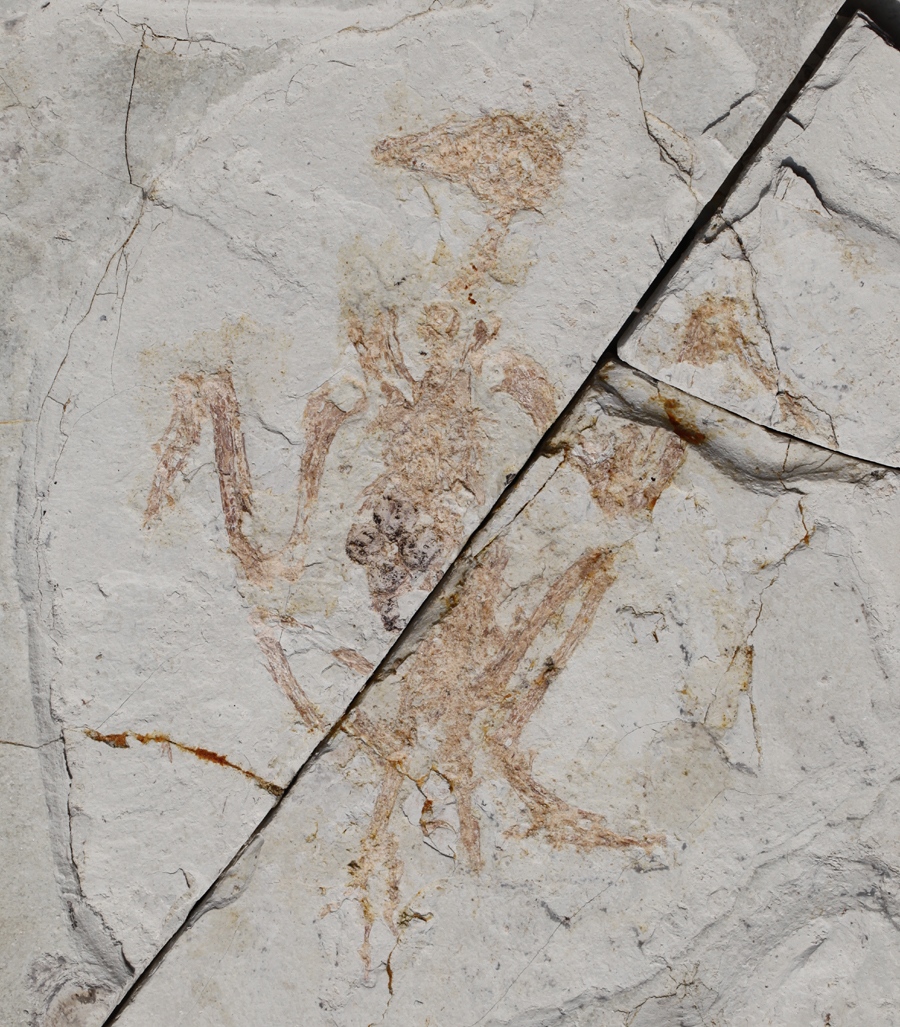 |
Nature: Exquisite bird fossils reveal egg-producing ovary |
Exquisite bird fossils reveal egg-producing ovary
Early avians lost one of two ovaries to take flight
Brian Switek
This fossil specimen of an ancient enantiornithes shows circular structures thought to be ovarian follicles — but, like in modern birds, only on the left side of the body.
Palaeontologi... |
|
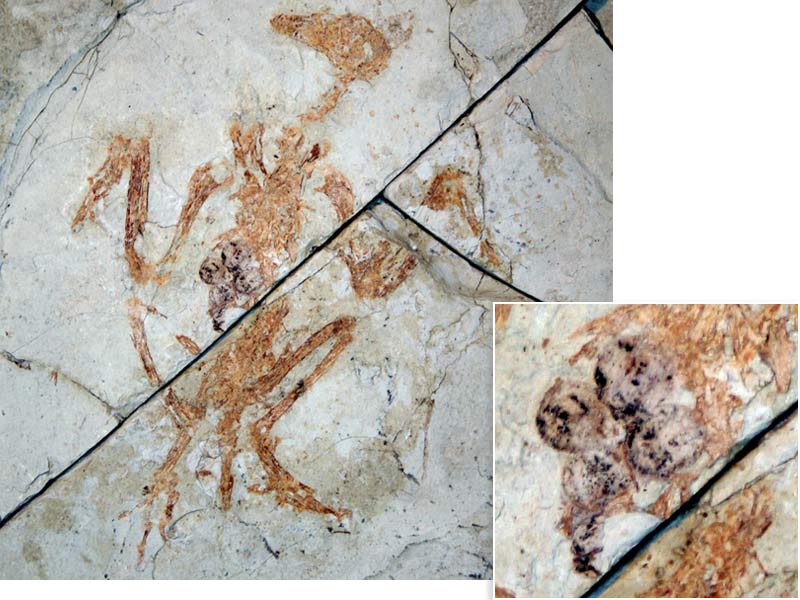 |
Science: The Early Bird Loses an Ovary |
The Early Bird Loses an Ovary
by Sid Perkins
The follicles (close-up, inset) preserved in the fossilized ovary of this 125-million-year-old bird (main image), provide insights into the reproductive biology of these early birds and into bird evolution. Credit: Aijuan Shi; Zhonghe Zhou (inset)
The dinosaur... |
|
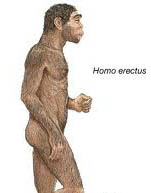 |
Xinhua: New Chinese fossil discovery named Luanchuan Man |
ZHENGZHOU, March 7 (Xinhua) -- Chinese paleoanthropologists have given the name Luanchuan Man to Homo erectus fossil specimens discovered in central China's Henan Province.
The fossilized teeth of an early human were recently discovered at the Sunjiadong excavation site in Luanchuan County in the city of Luoyang... |
|
|
|
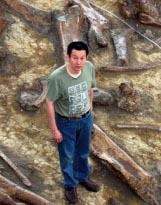 |
Nature: China's dinosaur hunter - The ground breaker |
China's dinosaur hunter: The ground breaker
As he revolutionizes ideas about dinosaur evolution, Xing Xu is helping to make china into a palaeontological powerhouse.
Kerri Smith1
05 September 2012
Xing Xu stands among the remains of duck-billed dinosaurs in Zhucheng, China. (LOU LINWEI)
Palaeonto... |
|
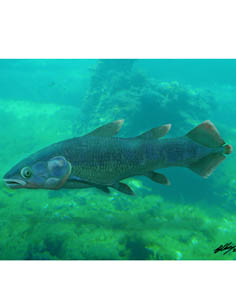 |
LiveScience:Skull Confirms Older Origin for 'Living Fossil' Fish |
A group of ancient fish, called coelacanths, have changed so little over time they are known as "living fossils." Now, the remains of a skull found in the Yunnan Province of China, confirms these creatures have been around, largely unchanged, for more than 400 million years.
Once thought to have died out at roug... |
|
